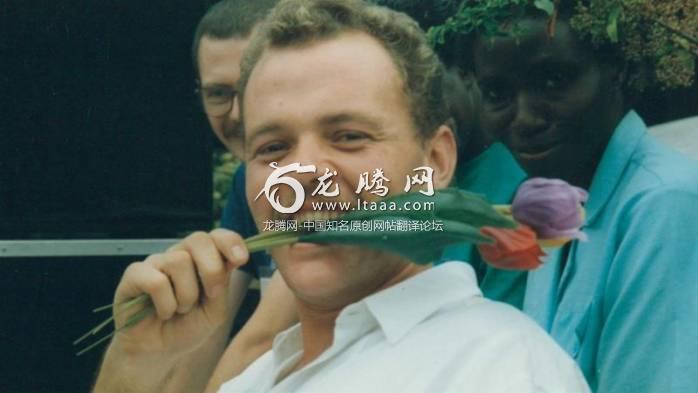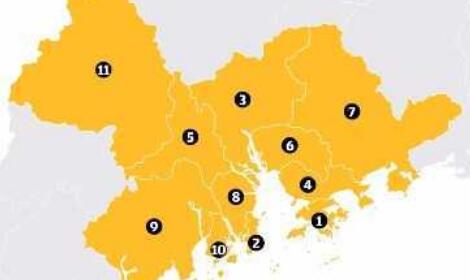我在1986年诊断出艾滋病, 但我今天仍然活着 [卡塔尔媒体]
国际艾滋病大会是全球有关健康议题最大规模的会议。 大会的第一次举办时间为1985年, 那时正是艾滋病席卷全球的高峰期。 从那以后它一直是一个能把科学、游说与人权交织在一起的独特平台。 22届的国际艾滋病大会(艾滋病2018)将会在2018年7月23日到27日之间在荷兰的阿姆斯特丹举行。
I was diagnosed with AIDS in 1986 and I'm still around
We have made a lot of progress against AIDS, but the fight is not over yet, by Shaun Mellors, 22 Jul 2018
我在1986年诊断出艾滋病, 但我今天仍然活着
虽然我们在对抗艾滋病方面已经取得了很大进步, 但战斗并没有结束。 本文由肖恩·梅乐滋于2018年7月22日发表于半岛电视台网站。
'My virus is older than all the young people that I now work with,' writes Mellors [Courtesy of Shaun Mellors]
“我身上的病毒比与我一起工作的所有年轻人都老,”梅乐滋写到。 (感谢肖恩·梅乐滋提供的这张照片)
The International AIDS Conference is the largest conference on any global health issue in the world. First convened during the peak of the AIDS epidemic in 1985, it continues to provide a unique forum for the intersection of science, advocacy, and human rights. The 22nd International AIDS Conference (AIDS 2018) will be hosted in Amsterdam, Netherlands, between July 23-27, 2018.
国际艾滋病大会是全球有关健康议题最大规模的会议。 大会的第一次举办时间为1985年, 那时正是艾滋病席卷全球的高峰期。 从那以后它一直是一个能把科学、游说与人权交织在一起的独特平台。 22届的国际艾滋病大会(艾滋病2018)将会在2018年7月23日到27日之间在荷兰的阿姆斯特丹举行。
I was diagnosed with HIV on December 24, 1986. I remember the day so well - I had a student summer job at a supermarket chain. I collapsed at work and was rushed to the Johannesburg General Hospital. I was given an AIDS diagnosis and a death sentence, just six months to live, after a doctor examined me and assumed that (because I disclosed my sexual orientation) I had to have AIDS. What followed was days of confusion, fear, anxiety and isolation: biohazard stickers on my hospital door, hospital staff and visitors having to wear the full protective clothing (looking like space monsters, I thought). I was confronting my death at the age of 21. But I managed to beat the doctor's death sentence.
我是在1986年12月24日诊断出艾滋病的。 对于那一天, 我记忆犹新——当时我在一家连锁超市做一份暑期工, 在工作中晕倒了, 然后被紧急送往约翰内斯堡综合医院。
一位医生为我做了检查之后, (由于我透露了自己的性取向)他认为我不可能逃过艾滋病的魔咒。 随后我诊断出了艾滋病, 被判了死刑, 只剩下六个月的时间。 之后的几天里, 我陷入了迷茫、恐惧、焦虑和与世隔绝的感觉——我那家医院的门上贴着生物风险的标签, 医疗人员和探望人员必须穿上全套防护衣(我当时觉得那很像太空怪物)。 年仅21岁的我感到了死亡的威胁。
但我终究是打败了医生的死刑判决。
Six years later, in 1992, I attended the International AIDS Conference in Amsterdam under the theme "A world united against AIDS". By then, I had already publicly disclosed my HIV status in South Africa. I had stopped seeing myself as a victim or a patient and started seeing myself as a person, a person living with HIV. I had found spaces where I did not have to fear disclosing my HIV status or be concerned about people discriminating against me. I felt I was moving forward with a greater sense of purpose.
六年后的1992年, 我去了阿姆斯特丹参加国际艾滋病大会, 大会的主题是“全世界团结起来对抗艾滋病”。
到那时, 我已经在南非公开了自己的艾滋病状况, 并不再把自己看作是一个受害者或者病人——我开始把自己看作是一个人, 一个携带艾滋病毒活着的人。 我已经找到了透露自己的艾滋病状况而无需恐惧, 也无需担心别人歧视的空间。 我感觉自己正带着一种更大的使命感大步向前。
Almost 8,000 people - scientists, clinicians, NGO workers, policymakers and people living with HIV - were with me at that conference. It really felt like the world was united against AIDS. I used this opportunity to connect with them, be inspired by them and share my experiences. It was an important platform for bringing together all the different stakeholders and partners in the fight against HIV and AIDS. But, back then, it was not easy to hold such conferences.
和我一起参加那场大会的共有约8000人——他们是科学家、临床学家、非政府组织工作人员、政策制定者以及携带艾滋病毒生活的人们。 我真真切切地感受到全世界联合了起来对抗艾滋病。 我利用这次机会与他们联系起来, 同时也受到了他们的启发, 还分享了自己的经历。 那是一个把所有相关利益方和合作伙伴聚在一起抵抗艾滋病毒感染与艾滋病的重要平台。
然而, 在那个年代, 举办这样一场大会并不容易。
HIV and human rights
艾滋病毒感染与人权
The organisers, the International AIDS Society (IAS), originally planned to hold that year's conference in Boston, US. But in 1987, at the height of a global panic about HIV and AIDS, the Reagan administration had imposed a ban on HIV-positive foreigners travelling to the US; the ban was officially reversed only 22 years later, by President Barack Obama. The IAS eventually decided to move the conference to the Netherlands to avoid complications. This was perhaps one of the first incidents that made everyone realise that HIV was a human rights issue - people living with HIV were being denied most fundamental rights only because they were carrying a virus. Some politicians in the US (and in other countries around the world) thought they could prevent the spread of HIV by closing their borders. Of course, HIV knew no borders and did not discriminate based on nationality. There was already a growing HIV epidemic in the US, so these restrictions did not make much sense.
大会组织者——国际艾滋病协会(IAS)——最初的计划是在美国波士顿举办当年的大会。 然而在1987年, 面对艾滋病毒感染和艾滋病高涨的全球性恐慌让里根政府颁布了禁令阻止艾滋病毒呈阳性的外国人进入美国。 在经历了22年时间之后, 该禁令才由巴拉克·奥巴马总统正式推翻。 国际艾滋病协会为了避免各种复杂的状况, 最后决定把大会搬到荷兰。
这恐怕是最早让每个人意识到艾滋病毒感染事关人权的事件之一——受到艾滋病毒感染的人们仅仅因为携带了一种病毒就被拒绝给予最基本的权利。 美国(以及世界上其他国家)的政治家认为他们可以通过关闭边境线来阻止艾滋病毒的传播。 当然, 艾滋病毒不知边境为何物, 也不会对任何民族另眼相看。 不过, 当年艾滋病毒已经在美国大规模爆发, 所以这些限制措施其实并没有什么意义。
Despite the venue change, the conference was extremely successful. By getting all those people together, against all odds, the organisers showed the world that in order to have an effective response to the HIV epidemic, people with HIV simply had to be included into the conversation. They had to be part of the discussions and the decisions about the disease that they were living with. At the conference, I reconnected with many friends who I had met at a London conference a year earlier, and sadly, heard stories of some who did not make it, as they had died from HIV-related complications. We were losing far too many friends to HIV-related illnesses all around the world. There was no treatment back then - all we had was hope, passion, activism and each other.
除了场地有所改变, 这次大会举办得及其成功。 组织者排除万难把所有人聚到一处, 让全世界了解到——为了有效应对艾滋病毒的大规模传播, 艾滋病毒携带者必须要参与谈话; 在人们对这种与病患相伴一生的病毒进行讨论并做出决定的时候, 他们必须要参与其中。
在这次大会上, 我和一年前在伦敦的一次会议里遇到的许多朋友再度相见。 但在那里我也听到了令人悲伤的故事——有些人没能挺过来, 死于了艾滋病相关的并发症。 全世界有我们太多朋友的因艾滋病相关的疾病溘然长逝了。 彼时还没有什么治疗方法——而希望、热忱、行动主义和彼此相伴就是我们所拥有的一切。
At the Amsterdam conference, I also became painfully aware of the "health divide" between rich countries and poor(er) countries.In the global north, clinical trials related to antiretroviral (ARV) treatment were being carried out. Many people with HIV lucky enough to be living in this part of the world were volunteering in these trials to see whether a certain drug would work. By doing so, they were not only helping themselves, but also everyone else living with HIV - even the ones living on the other side of the globe, like myself. I am very grateful to those volunteers who participated in these clinical trials because they allowed scientists to demonstrate what worked and what did not work. But most importantly, they gave us hope that one day there would be treatment for all.
在阿姆斯特丹大会, 我也痛苦地明白了穷国与富国之间的“健康鸿沟”。
在北半球, 抗逆转录病毒(ARV)的相关临床试验治疗正处于实施阶段。 很多幸运地住在世界这个地方的艾滋病毒感染者自愿参与了这些实验以观测某种药是否会起作用。
他们这么做不但是在帮自己, 而且也帮到了其他的艾滋病感染者——即使是那些生活在世界其他地方的人, 譬如我。 我对这些参与临床试验的志愿者充满感激之情, 因为他们让科学家得以发现什么有效, 什么无效。 不过最重要的一点是, 他们给了我们希望——让我们觉得也许有一天, 所有的人都能被治好。
The 1992 conference also had sessions on "psychosocial care and treatment" which included alternative, complementary and traditional therapies and lots of emphasis on counselling protocols, treatment of opportunistic infections, dealing with death, dying and multiple losses. This was sadly the reality for many of us in the global south - trying to live with HIV by trying different therapies and routines to stay as healthy for as long as possible. We were sharing our fears and concerns in counselling sessions, with some of us even becoming counsellors ourselves. Although we had treatment for opportunistic infections, there was a constant sense of loss and fear during the mid to late 1990s.
1992年的大会安排了“社会心理关爱与治疗”的日程。 它的内容包括替代疗法、补充疗法与传统疗法, 并且非常重视心理咨询的建设方案、随机感染的治疗, 以及如何面对死亡、临死和多名亲友去世的痛苦。
这对身在南半球的我们中的很多人来说是一种现实——当我们试图通过不同的疗法与方法在尽可能长的时间里保持健康状态带病生活所经历的悲伤现实。 我们在心理咨询的时间里分享了自己的恐惧与担忧, 有些人甚至自己成了心理咨询师。
在九十年代中期到晚期, 尽管我们能够治疗随机感染, 但是那种不断的失去感与恐惧感却不曾离去。
Then Vancouver happened - the International AIDS conference of 1996. It was at that conference in Canada that we learned ARVs were working. Finally, we had hope for a treatment. I remember standing in the hall during the conference when the results of the clinical trials were announced and saying to my friend, "We are going to live!"Realising that a cocktail of drugs could keep us alive was incredibly emotional and empowering. Of course, the global health divide was still as valid as it was four years earlier. There was a treatment that could work, but we didn't know when it would reach the people living in the global south.
后来到了温哥华会议——那是1996年的国际艾滋病大会。 我们是在加拿大的大会里了解到抗逆转录病毒疗法有用的消息。 终于——我们有了治愈的希望。 我记得当大会宣布临床试验结果的时候, 自己正站在大厅里, 也记得自己对朋友说, “我们可以活下去了!”
当我们知道有一种鸡尾酒药疗法能让我们活下的时候, 感到了难以置信地激动和力量。 当然, 世界健康的鸿沟还是和四年前一样固若金汤。 虽然有了一种可能有效治疗手段, 我们却不知道它什么时候能来到南半球的人们身边。
It took another four years for the world to take action to right this wrong. At the 2000 AIDS conference in Durban, South Africa, a commitment was made to address this "health divide" and make sure everyone living with HIV, no matter where they live, had access to ARVs.
又过了四年, 世界才采取了行动来纠正这个错误。 在南非德班召开的2000年艾滋病世界大会上, 与会者承诺要解决“健康鸿沟”的问题, 以保证所有携带艾滋病毒生活的人无论身在何处, 都能接受抗逆转录病毒疗法。
Building bridges
架起桥梁
Fast forward to 2018. I am fortunately still around - a little greyer, with more wrinkles, a bit wiser but still involved in HIV activism. And for this year's International AIDS conference, I am once again heading to Amsterdam - the city that hosted us in 1992, when it was not possible for us to travel to the US. The theme of this year's conference is "Breaking Barriers, Building Bridges" and it will bring together 25,000 people working in different sectors of the HIV response.
时光荏苒,岁月如梭, 转眼到了2018年。 幸运的我依然活着——虽然头发白了一点, 皱纹多了一点,智慧长了一点, 却还在积极参与抗击艾滋病毒的行动。
为了参加今年的世界艾滋病大会, 我将再一次前往阿姆斯特丹——那座在1992年当我们不能前往美国时, 曾经招待过我们的城市。 今年大会的主题是“破除障碍, 架起桥梁”。 大会将召集25000名在各个领域抗击艾滋病毒的与会者。
Incredible strides have been made in the 26 years since the first Amsterdam conference. Twenty million people living with HIV are now on ARV treatment and due to more widespread access to effective treatments, HIV incidence and AIDS-related mortalities are steadily decreasing. There is also greater recognition of the important role effective treatment plays in prevention, and the mere fact that people are living with HIV longer.
从阿姆斯特丹召开的第一届大会到现在,26年已经过去了。 在此期间, 我们取得了惊人的成就。 2000万的艾滋病毒者现在都已接受抗逆转录病毒疗法。 另外, 由于人们有了更多途径接受有效治疗, 艾滋病毒感染的发病率以及与艾滋病想关的死亡率都处于稳定下降的趋势。 更多的人也已经开始意识到有效预防措施的意义, 以及携带艾滋病毒的人们活得更久是多么重要的一件事。
While we should celebrate these considerable achievements, there is still much that remains to be done. Today, we are facing an important turning point in the fight against HIV. If we can lower the number of new infections and ensure that those who are living with HIV are all tested and supported to be on treatment, then we can really beat AIDS. But we are facing some significant challenges. HIV is no longer receiving the political attention and funding that it requires. Moreover, in some parts of the world, the virus is still widespread, especially in groups and populations that are ostracised or criminalised - gay men and other men who have sex with men, sex workers, transgender people and people who use drugs.
虽然我们应当庆祝这些伟大的成就, 但等待我们去做的事还有很多。 今天, 我们处于对抗艾滋病毒的一个重要转折点。 如果我们能够降低新感染者的数量, 保证这些携带艾滋病毒生活的人们都得到病毒测试, 并支持他们进行治疗, 那么我们就能真正打败艾滋病。
然而我们却面临着一些严峻的挑战。 研究艾滋病毒所需要的政治关注和资助已经今时不同往日。 更严重的是, 在世界的某些地方, 这种病毒仍在蔓延, 特别是在受到社会排斥或者被视为罪犯的某些人群——如男同性恋、与男人发生性行为的其他男性、性工作者、变性人以及吸毒的人群。
The fact that these populations are criminalised makes it harder for them to access the information and services that they require to protect themselves from HIV and as a result, we can see an increase in HIV in these populations. We will never end AIDS if we chose to exclude or ignore the needs of all populations and people. According to the latest statistics from UNAIDS, while there are 21.7 million people in treatment, there are still 15.2 million who are not. We need to redouble our efforts and our resources to ensure that all people who require access to treatment, especially the groups that are mentioned above, have access. Treatment keeps people healthy, allows people to engage in society and live a normal life and also reduces the chances of them transmitting HIV. For example, I have an undetectable viral load in my body - the treatment that I am on is suppressing viral activity so the virus is dormant. This means that I cannot transmit HIV to a sexual partner. Scientists are still constantly working to improve these treatments, make them easier and simpler to take and minimise their side effects.
由于这些人群被视为罪犯, 他们在获取需要保护自己免受艾滋病毒感染的信息与服务上更加困难。 因此, 我们可以看到艾滋病毒在这些人群中的发病率进一步上升。 如果我们选择排斥或者忽视所有群体和所有人的需要, 那就永远不能终结艾滋病。
根据联合国艾滋病协会的最新数据, 虽然2170万患者接受了治疗, 但没有接受治疗的患者夜高达1520万人。 我们需要投入加倍的努力和资源来保证所有需要治疗的人都能获得治疗, 特别是以上人群。
接受治疗不但能让人们保持健康的状态, 融入社会, 过上正常人的生活, 还可以降低他们继续传播艾滋病毒的几率。 譬如说, 我体内的病毒已经低到不可测出的数量——这是因为我现在接受的治疗压制了病毒的活动, 所以病毒处于休眠状态。 这意味着我不可能把艾滋病毒传播给性伴侣。
科学家们还在继续不断努力寻求改善这些治疗的方法, 让治疗变得更简单易行, 同时也尽量减少治疗的副作用。
We also have a lot of work to do around HIV prevention. There are still 1.8 million new HIV infections a year and this is simply not good enough. We know what works to prevent HIV and we need to ensure that every person, no matter who they are or where they are, is able to choose what option they feel works for them. We know that HIV is the leading cause of death among adolescents and young people in sub-Saharan Africa and the second-leading cause of death globally, but we also know that adolescents and young people are not interested in HIV. We need to find different ways of ensuring that HIV education is integrated into sexual education and that young people are actively engaged in designing and shaping strategies that work best for them. Yes, I, too, was young when I was diagnosed with HIV and my virus is older than all the young people that I now work with. This is why I remain committed to ensuring that we have the political commitment, the resources and the will to break down barriers and build bridges that allow us to have choices with dignity, to remain healthier, immaterial of HIV status, no matter who we are or where we live.
在艾滋病的预防方面, 我们也有大量的工作需要完成。 新增的艾滋病毒感染者仍然高达每年180万, 这根本不行。 我们既然知道什么措施能有效防止艾滋病毒, 就应该保证每一个人, 无论身为何人身在何方, 都能选择他们觉得有效地治疗方式。
我们知道艾滋病毒感染是撒哈拉以南地区青少年死亡的首要原因, 也是在全球范围的第二大死因。 但我们也知道青少年对艾滋病毒不感兴趣。
我们需要寻找不同的方法, 让年轻人积极参与制定对他们最有效的政策, 以保证艾滋病教育能渗入到性教育当中。
也因为这个原因, 我仍然会积极奔走, 以保证我们拥有政治承诺、所需资源以及坚强意志来破除障碍, 建造桥梁, 让我们无论是否艾滋病毒感染者, 也不管身为何人身在何处, 都能有尊严地拥有让自己保持更健康状态的选择。
The views expressed in this article are the author's own and do not necessarily reflect Al Jazeera's editorial stance.
本文的观点是作者个人观点, 不一定反应半岛电视台主编的观点。 (译者:半岛电视台是阿拉伯世界最着名的电视台。)
版权声明
我们致力于传递世界各地老百姓最真实、最直接、最详尽的对中国的看法
【版权与免责声明】如发现内容存在版权问题,烦请提供相关信息发邮件,
我们将及时沟通与处理。本站内容除非来源注明五毛网,否则均为网友转载,涉及言论、版权与本站无关。
本文仅代表作者观点,不代表本站立场。
本文来自网络,如有侵权及时联系本网站。
图文文章RECOMMEND
热门文章HOT NEWS
-
1
他们认为,协商失败的峰会实际上符合中国的利益,而且北京的影响力将增加,因...
- 2
- 3
- 4
- 5
- 6
- 7
- 8
- 9
- 10
推荐文章HOT NEWS
-
1
这是中国中部河南省郑州的一个普通的星期六。富士康工厂大楼上空笼罩着...
- 2
- 3
- 4
- 5
- 6
- 7
- 8
- 9
- 10











